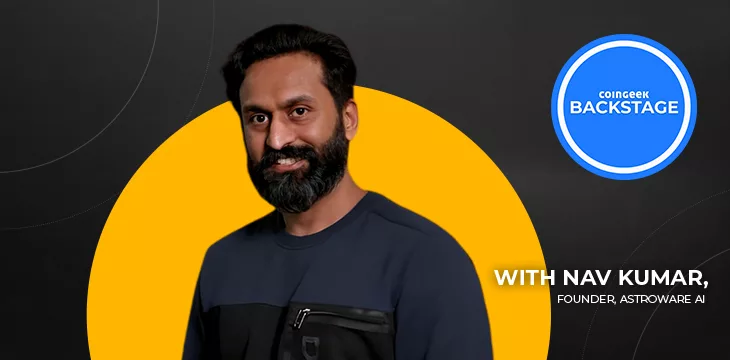Nav Kumar says artificial intelligence (AI) and blockchain are competing technologies, competing with each other, but complementing and improving each other. In an interview with CoinGeek Backstage, Kumar explored the intersection of the two technologies and the new use cases that arise from their convergence.
Kumar was one of the presenters at AI Forge’s ‘Introduction to AI and Blockchain Masterclass’ held in London. Becky Liggero caught up with him after the event to discuss his company, Astroware AI, his journey in blockchain, and where AI fits in.
Astroware AI is building a community CRM similar to “HubSpot for communities,” he told CoinGeek Backstage. The solution targets community-driven marketing and addresses widely distributed communities across dozens of platforms.
Kumar previously worked at Oracle for over 14 years, where he worked on much of the predictive work that laid the foundation for today’s AI advancements. He currently serves as a mentor at Outlier Ventures, one of the world’s largest Web3 accelerators.
His diverse background allows him to identify problems in a variety of fields and see how technology can solve them.
“With AI and blockchain, we are creating an industrial revolution moment for knowledge work,” he said.
One area where AI can impact blockchain is smart contract development. Today, developers work on smart contracts on a case-by-case basis, leaving a lot of room for errors and mismanagement. AI allows you to automate the creation of smart contracts.
However, researchers have found that AI is not ready to completely replace developers in the blockchain world. They recommended using AI to automate some tasks but cautioned against relying on technology for the entire process. A study by Salus Security
We concluded that ChatGPT is not yet able to detect smart contract vulnerabilities.
Conversely, blockchain is critical to the future of AI. Since AI relies entirely on data for training, blockchain can be used to authenticate the data. Digital identities also allow data creators to own their data outright and get paid whenever it is used to train AI through microtransactions.
Blockchain “allows us to process data, and AI allows us to process data in a way that preserves privacy,” Kumar added.
For artificial intelligence (AI) to function properly within the law and succeed in the face of growing challenges, it must integrate enterprise blockchain systems that ensure data input quality and ownership. This helps keep your data safe while ensuring immutability. data. Check out CoinGeek’s coverage of this emerging technology to learn more about why enterprise blockchain will become the backbone of AI.
Watch: How blockchain can keep AI honest
Are you new to blockchain? To learn more about blockchain technology, check out CoinGeek’s Blockchain for Beginners section, our ultimate resource guide.



